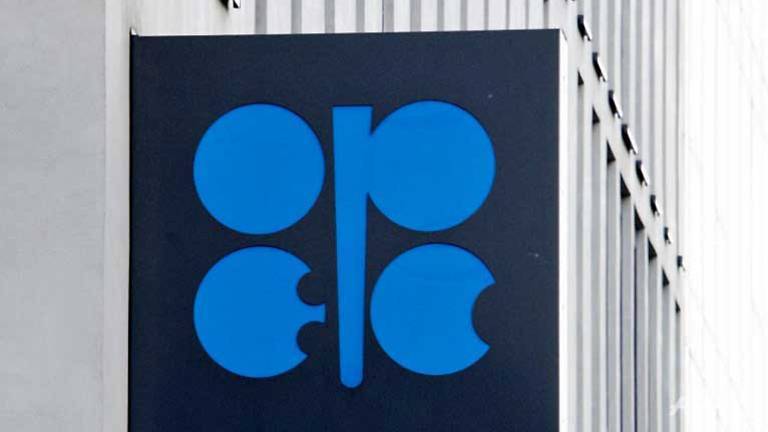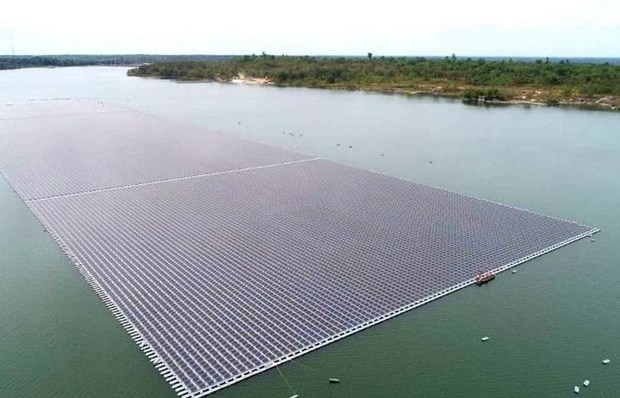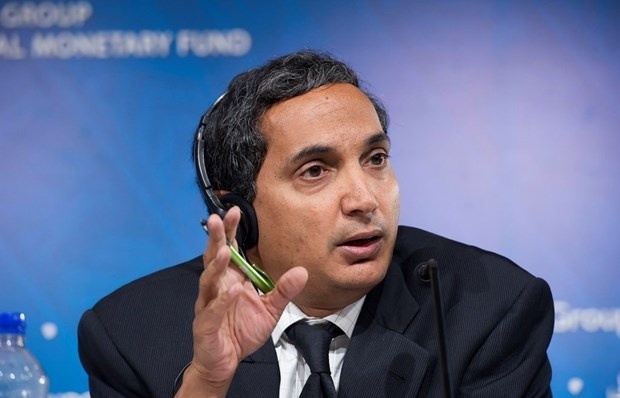Oil producers to extend output curbs at OPEC meeting
 |
| The logo of OPEC at the OPEC headquarters in Vienna. (JOE KLAMAR/AFP) |
Less predictable however is the extent to which this likely agreement from Thursday's talks will boost the price of oil, particularly with US shale producers back from the dead and pumping at near-record levels.
In November the Organisation of the Petroleum Exporting Countries agreed to slash output by 1.2 million barrels per day (bpd).
The following month several nations outside the cartel, notably including Russia, agreed with OPEC to reduce their production by 600,000 bpd.
The low price, close to just US$25 per barrel in early 2016, had battered the finances of all producers, not just stricken Venezuela but even rich-as-Croesus Saudi Arabia.
The agreement helped lift the oil price to the current level of just above US$50 per barrel, although this is still less than half that of 2014.
The pact was also a dramatic policy turnaround for OPEC that even had regional rivals Saudi Arabia and Iran, at daggers drawn otherwise, see eye to eye.
The deal, lasting for six months, is due to expire on Jun 30. An agreement to renew it is widely expected, the only question being for how long.
Saudi Arabia and Russia, the biggest of the producers, agreed last week that it should be rolled over for nine months, an idea backed by Iraq's oil minister on Monday.
"Nine months seems good to me," Algeria's energy minister Noureddine Boutarfa told reporters as he arrived in Vienna on Tuesday.
But Kuwait's Oil Minister Issam Almarzooq said before leaving his country for Austria on Tuesday said that "not everybody" was on board yet, Bloomberg News reported.
Bloomberg also quoted unnamed delegates as saying that producers would study on Wednesday the merits of extentions of six months and a year as well.
VICTIMS OF SUCCESS
Analysts said that, assuming the deal is extended, the impact in reducing crude inventories should become more apparent from July because of a seasonal pick-up in demand.
However OPEC and the other producers run the risk of being victims of their own success because of shale oil producers in the United States, which are not part of the accord.
Before, OPEC's strategy was to keep pumping at full tilt in order to push the oil price lower and make life difficult for the Americans, who need a higher price to make money.
When the oil price was at its nadir in 2016, scores of US firms went bankrupt. But with the recent rise, many have returned to the market - and with a vengeance.
US production has risen 850,000 bpd from its 2016 lows to 9.3 million bpd now, not far from the all-time record set in 2015 and just shy of Saudi output levels.
According to Valentin Bissat at Mirabaud Asset Management, this shows that OPEC "has lost some its ability to fix (oil) prices".
And according to Commerzbank, rising US production, which will reduce OPEC's market share, will make "discipline ... gradually crumble" among its members to stick to the curbs.
"We therefore still expect to see a Brent oil price of less than US$50 a barrel at the end of the year," the German bank said in a research note.
What the stars mean:
★ Poor ★ ★ Promising ★★★ Good ★★★★ Very good ★★★★★ Exceptional
Latest News
More News
- Malaysia sets up clean energy exchange (April 16, 2024 | 16:59)
- Indonesia issues dengue fever warning to Bali tourists (April 16, 2024 | 16:53)
- Trade facilitation ahead with ASEAN-India deal upgrade (April 15, 2024 | 17:00)
- ASEAN strength to be built on with trade reforms (April 15, 2024 | 14:58)
- Malaysian airlines to charge carbon levy soon (April 15, 2024 | 09:21)
- Malaysia issues heatwave alert for 14 areas (April 15, 2024 | 09:12)
- China, Thailand forge alliance for moon exploration (April 15, 2024 | 08:00)
- Two Philippine navy pilots dead after helicopter crash (April 11, 2024 | 16:58)
- Singapore: E-commerce scams double in 2023 (April 11, 2024 | 16:55)
- Malaysia urges Meta, TikTok to curb harmful content (April 10, 2024 | 16:21)


















 Mobile Version
Mobile Version